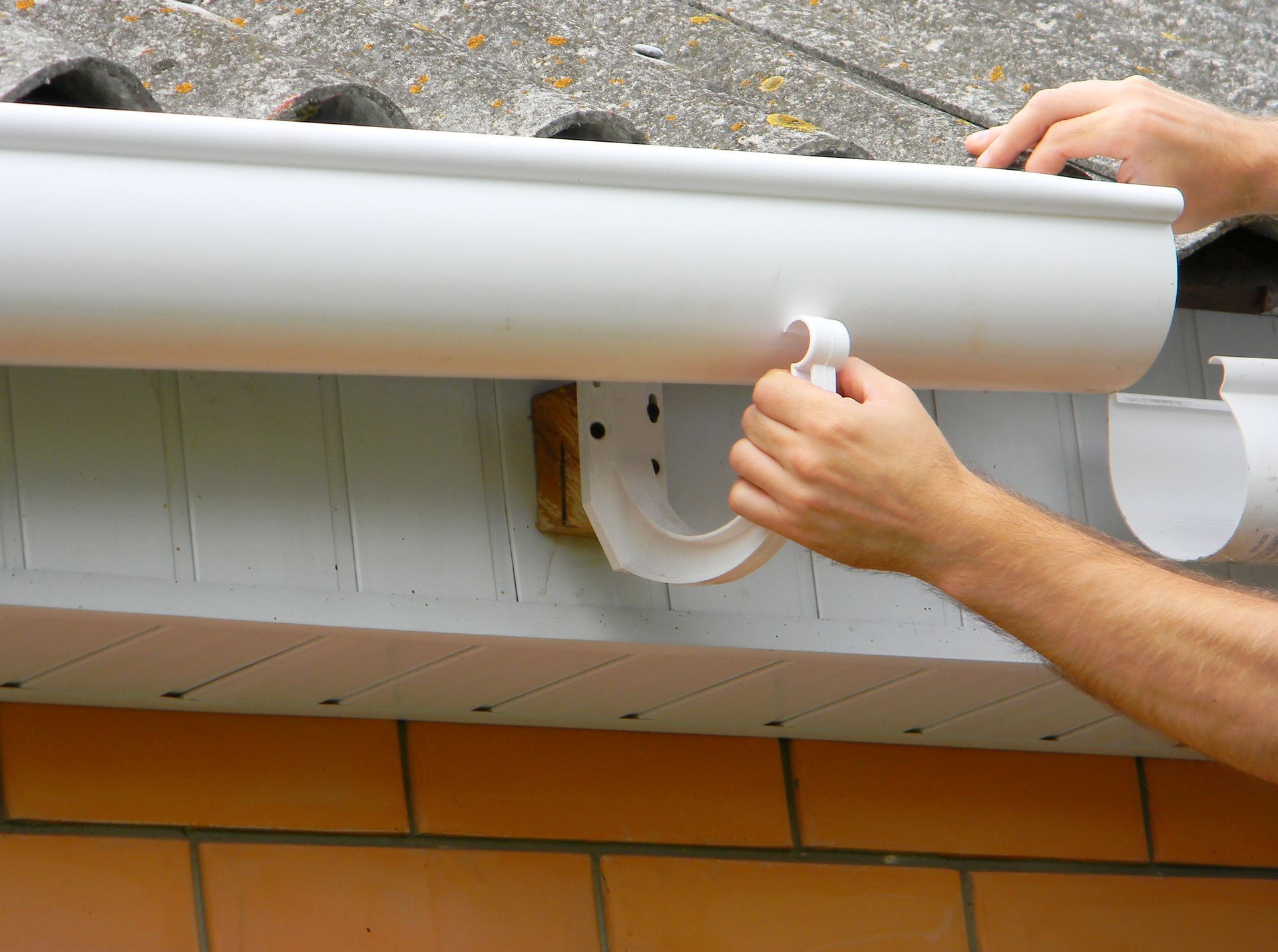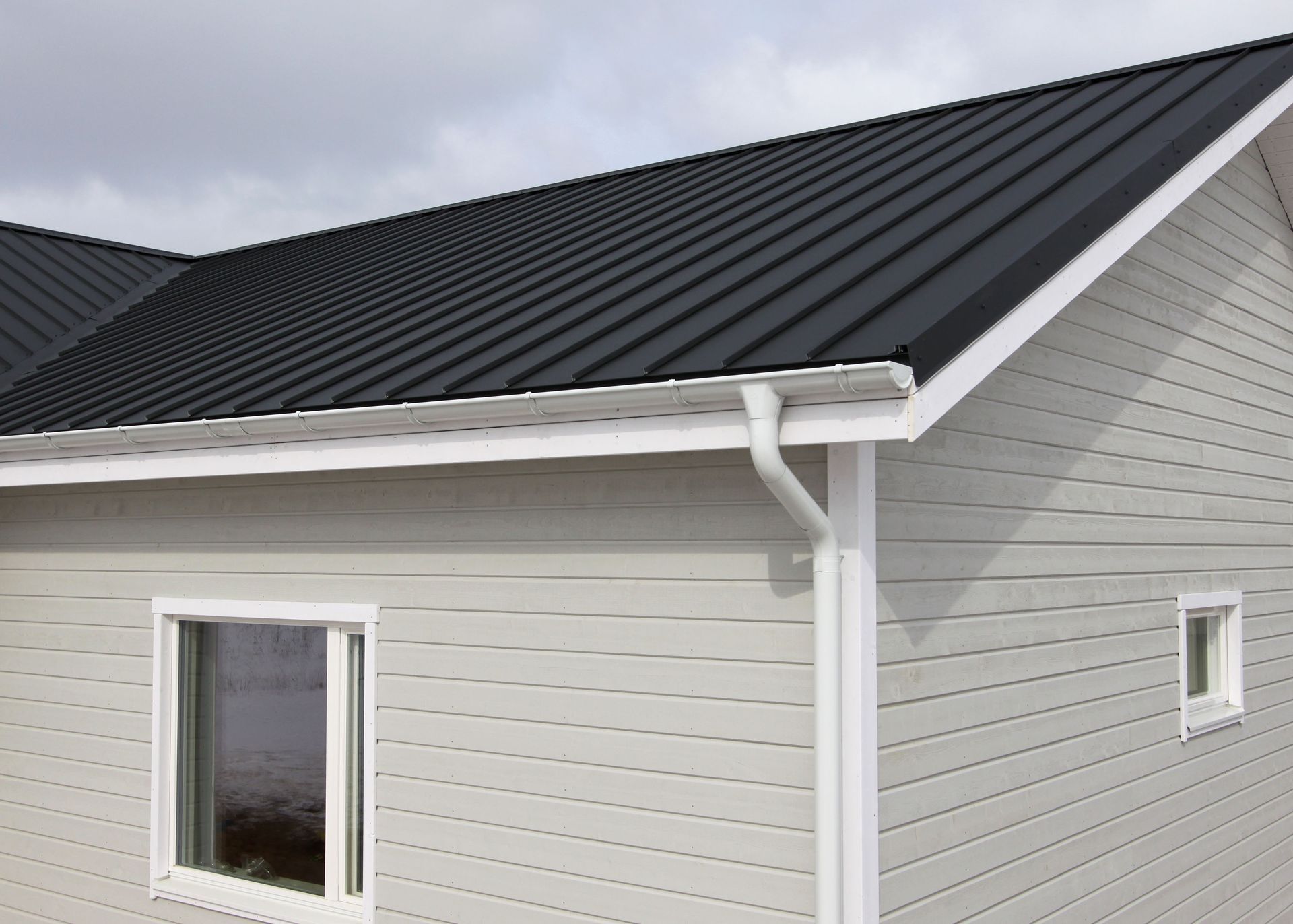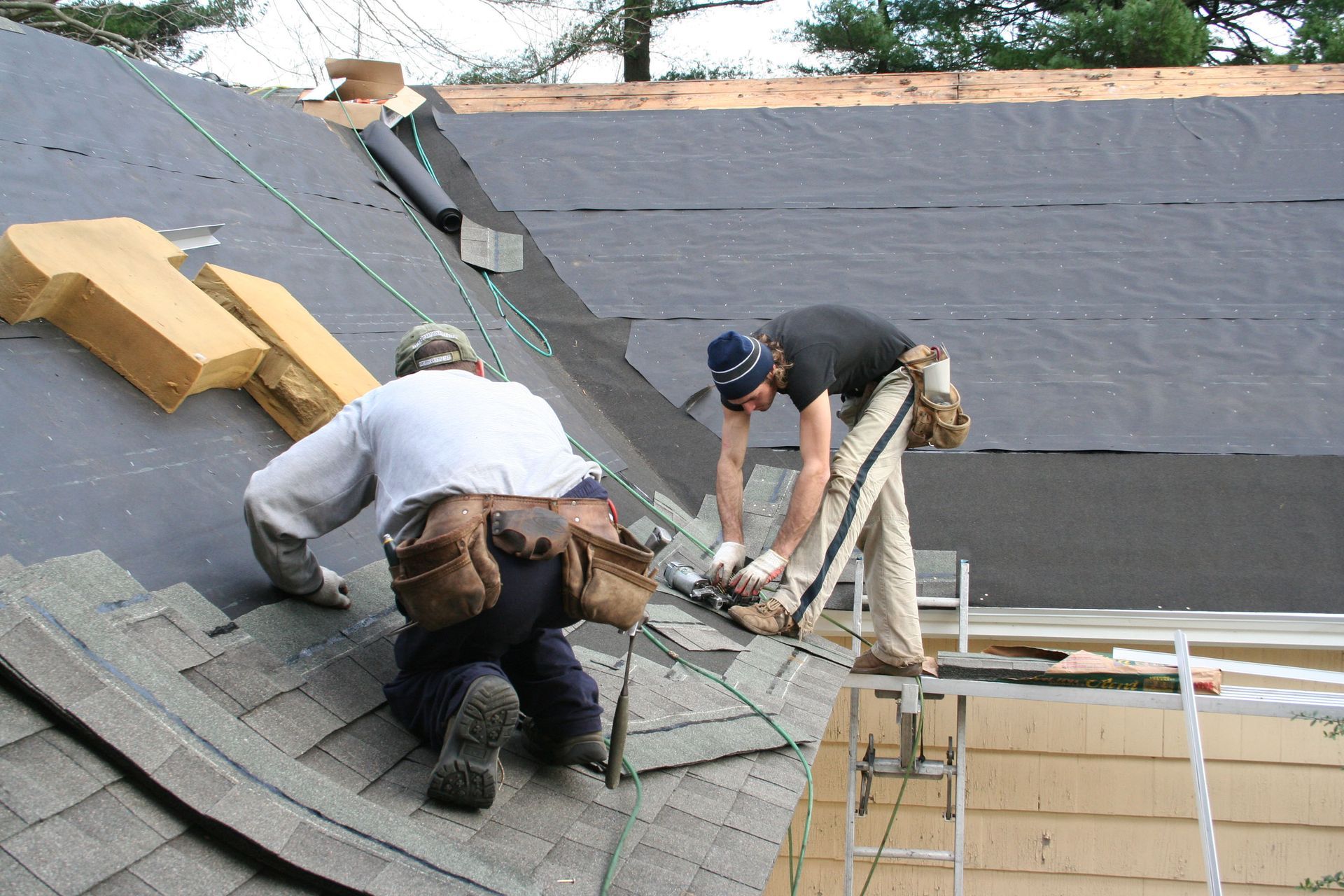Complete Guide to Electrical Services: Wiring, Repair, Installation, and Maintenance
Imagine a house without electricity- no warm showers in winter, no cooling ceiling fan during blazing summers, no flickering screens of televisions and laptops, and absolutely no kitchen conveniences. An unimaginable nightmare, isn’t it? Well, our dependency on electricity is more than evident, but have we ever given a thought about the complexity behind these privileges? The wiring beneath the walls, installations that light up our lives, various repairs, and regular maintenance checks that ensure we don’t fall into dark days. In this blog post, we illuminate everything you need to know about electrical services: from wiring and repair to installation and maintenance. We’re flipping the switch on all your questions about electrical services. Get ready to enlighten yourself!
We offer a wide range of electrical services to meet your needs, including repair and installation of electrical systems in residential and commercial settings, generator installation, lighting installation, panel upgrades, and more. Our team of experienced electricians is licensed, insured, and dedicated to providing top-notch service for every customer. Contact us today to schedule an appointment or receive a free estimate.
Understanding Different Categories of Electrical Services
When it comes to electrical services, it’s important to understand that they can be divided into various categories based on the type of property being serviced and the specific needs of the client. By understanding these different categories, you’ll have a better grasp of which services are suitable for your situation. Let’s dive into some of the key categories:
- Residential Electrical Services : These services focus on homes and residential properties. Whether you need wiring for a new home, installation of lighting fixtures, or repairs to existing electrical systems, residential electrical services cater to the unique needs and safety requirements of homeowners. These services cover everything from general wiring to more specialized tasks such as installing circuit breakers or upgrading electrical panels.
- Commercial Electrical Services : On the other hand, commercial electrical services are tailored to meet the electrical needs of businesses and commercial establishments. These services often involve handling larger-scale electrical systems and equipment, such as installing power distribution units, setting up HVAC systems, or ensuring proper grounding and surge protection in commercial buildings. Commercial electricians are trained to handle complex projects specific to commercial properties.
- Industrial Electrical Services : Industrial electrical services focus on the unique requirements of industrial facilities, factories, and manufacturing plants. These environments require specialized expertise due to their heavy machinery, high voltage systems, and strict safety protocols. Industrial electricians are familiar with industrial-grade equipment, motor controls, programmable logic controllers (PLCs), and other critical components necessary for efficient operation.
- Emergency Electrical Services : Emergency electrical services are available 24/7 and are crucial when urgent repairs or assistance is needed due to a sudden loss of power, electrical malfunctions, or hazardous situations. Whether it’s fixing faulty wiring that poses a safety risk or restoring power during an outage, emergency electricians provide prompt responses to address immediate concerns.
It’s important to note that some electrical service providers offer comprehensive solutions and cover all these categories, while others may specialize in specific areas. When choosing an electrical service, consider the nature of your project or issue, the type of property involved, and the expertise required for the job.
Residential vs Commercial Electrical Services
Residential and commercial electrical services vary significantly due to their respective purposes and requirements. It’s crucial to understand these differences to ensure that you hire the right professionals for your specific needs. Let’s take a closer look at the contrasting features:
- Scope of Work : Residential electrical services focus primarily on homes and smaller-scale projects. This includes tasks such as wiring installations, repair of outlets and switches, lighting fixture installations, circuit breaker replacements, and general maintenance. In contrast, commercial electrical services handle larger-scale projects involving businesses, offices, retail stores, and other commercial establishments. These might include installing extensive lighting systems, setting up power distribution units, wiring for complex HVAC systems, or managing fire alarm systems.
- Safety Regulations : While safety is essential in both residential and commercial settings, there are specific regulations that apply to each category. Residential electrical work must adhere to local building codes and safety standards designed to protect homeowners from electrical hazards. On the other hand, commercial electrical work is subject to more stringent regulations due to the complexity of systems involved and higher occupancy factors.
- Skillset and Expertise : Electricians who specialize in residential work typically have expertise in household electrical systems and components commonly found in homes. They understand how to navigate through attics and crawl spaces while ensuring minimal disruption to daily life. Commercial electricians possess specialized knowledge of larger-scale systems often utilized in business settings, such as three-phase power systems or backup generators. They are experienced with working in commercial buildings while minimizing disruptions to business operations.
- Timing and Scheduling : Residential electrical projects are often more flexible in terms of timing and scheduling, as homeowners can plan around their daily routines. Commercial projects, on the other hand, may require working during off-hours or weekends to minimize disruptions to business operations. Contractors must be able to accommodate these scheduling requirements and complete projects efficiently without compromising on quality or safety.
By understanding the distinctions between residential and commercial electrical services, you can make informed decisions when seeking professional assistance. Consider the unique needs of your property or project to ensure that you hire electricians with the appropriate expertise and capabilities.
Essential Electrical Repairs and Maintenance
When it comes to the safety and functionality of your electrical system, regular repairs and maintenance are crucial. Neglecting these tasks can lead to potential hazards, electrical failures, or even serious accidents. To ensure the smooth operation of your electrical system, consider the following essential repairs and maintenance practices.
One of the primary aspects of electrical repairs and maintenance is upgrading outdated wiring. Over time, wiring can deteriorate due to wear and tear, rodent damage, or outdated materials. It’s important to have a professional electrician assess your wiring periodically and replace any outdated or damaged sections. This not only enhances safety but also helps prevent power outages, shorts, and electrical fires.
Additionally, another critical aspect of maintaining your electrical system is regular inspections and maintenance. By scheduling regular inspections by a certified electrician, potential issues can be detected early on. These inspections typically include checking for loose connections, faulty outlets, frayed wires, malfunctioning switches, and other signs of wear or damage. Timely repairs or replacements can prevent major problems down the line and ensure the efficient functioning of your electrical system.
For instance, during an inspection, an electrician might discover that some outlets in your home are not grounded properly. By addressing this issue promptly and installing proper grounding, you reduce the risk of electrical shocks or damage to sensitive electronic devices.
In addition to inspections, staying vigilant about following safety guidelines is also crucial for effective maintenance. This includes avoiding overloading circuits by plugging too many devices into one outlet or using extension cords as permanent solutions. Properly organizing cables and ensuring they are not bent or damaged plays a crucial role in preventing accidental tripping or exposing wires to potential hazards.
By prioritizing essential repairs and maintenance practices, you not only increase the lifespan of your electrical system but also create a safer environment for yourself and your loved ones.
Troubleshooting Common Electrical Issues
Electrical issues can arise unexpectedly and disrupt your daily life. Troubleshooting common electrical problems can help you determine whether the problem requires professional intervention or if it’s a minor issue that you can address on your own. Here are some common electrical issues and their potential causes:
One of the most prevalent electrical problems is frequent circuit breaker trips. This typically occurs when there is an overload on a circuit. Overloading happens when too many devices or appliances are connected to a single circuit, exceeding its capacity. To troubleshoot this issue, start by unplugging unnecessary devices and redistributing the load to different circuits. If the problem persists, it’s best to consult with a professional electrician who can assess the situation and make any necessary repairs or upgrades to your electrical system.
Consider a scenario where you’re using multiple high-power appliances in your kitchen while the microwave suddenly stops working. A frequent tripping of the circuit breaker could indicate an overload due to all these devices functioning simultaneously. By redistributing the load and connecting some appliances to different circuits, you may resolve the issue without needing professional assistance.
Another common problem is intermittent power outages. These sudden interruptions in power can be caused by a variety of factors, including loose connections, faulty wiring, or even external issues like storms or power grid failures. First, check whether the power outage is limited to specific areas of your home or affecting the entire property. If it’s localized, inspect outlets and switches for loose or damaged wiring. If you cannot identify the cause, consulting with an electrician is recommended to ensure proper diagnosis and resolution.
Lighting issues also commonly occur in households, such as flickering lights or frequently burned-out bulbs. Flickering lights may be caused by loose connections in light fixtures or faulty switches. On the other hand, frequently burned-out bulbs can be due to incompatible wattages or poor electrical connections. In both cases, inspecting and tightening connections, replacing faulty switches, or ensuring proper bulb wattages can often resolve these issues. If the problem persists, it’s advisable to seek professional assistance to rule out any underlying electrical problems.
Troubleshooting electrical issues is like solving a puzzle – you need to investigate and figure out the root causes by examining various elements of your electrical system.
Remember, while troubleshooting minor electrical problems can be done independently, it’s essential to prioritize safety. If you feel unsure or encounter complex issues, it’s always best to consult with a certified electrician who has the necessary expertise to handle potential risks effectively.
Importance of Electrical Safety Measures
Electrical safety measures are of paramount importance in any setting, whether it be residential, commercial, or industrial. The potential hazards associated with electricity demand strict adherence to safety protocols to prevent accidents, fires, and even fatalities. By implementing effective electrical safety measures, individuals can safeguard themselves, their property, and those around them from potentially disastrous consequences.
When we think of electrical safety, the first thing that comes to mind is preventing electric shocks. This is indeed a crucial aspect as electric shocks can cause severe injury or death. However, electrical safety goes beyond just avoiding direct contact with high voltage. It also encompasses mitigating risks such as short circuits, electrical fires, and electrocution.
In addition to personal safety, electrical safety measures also contribute to the protection of property. Faulty wiring, overloaded circuits, or improper installation practices can lead to devastating fires that can quickly engulf homes or businesses. By adhering to proper safety measures and regularly maintaining electrical systems, the risk of fire caused by electrical faults can be significantly reduced.
Let’s consider a scenario where a homeowner neglects routine inspections and maintenance of their electrical panel. Over time, this leads to worn-out wires and loose connections within the system. One day, an unnoticed spark ignites nearby flammable materials in the basement. If proper electrical safety measures had been in place, such as regular inspections and timely repairs by a qualified electrician, this incident could have been avoided.
Moreover, incorporating electrical safety measures promotes a culture of responsibility that extends beyond individual well-being. It ensures that workplaces prioritize employee safety and adhere to regulatory standards. Electrical accidents in industrial settings can have far-reaching consequences not only for workers but also for productivity and overall operational integrity.
By recognizing the importance of electrical safety measures and taking appropriate actions to implement them in various settings, individuals and organizations prioritize the well-being of everyone involved.
Now that we understand the significance of electrical safety measures, let us explore the ways in which safety can be incorporated into electrical works.
Incorporating Safety in Electrical Services
Whether it’s wiring a new home, carrying out repairs, or installing electrical systems, incorporating safety measures is essential to minimize risks and ensure the longevity and reliability of the electrical infrastructure. From using proper protective equipment to following industry standards and regulations, here are some key aspects to consider when incorporating safety in electrical works:
1. Qualified Professionals: Hiring qualified electricians who have the necessary expertise, certifications, and experience is crucial. They understand the intricacies of electrical systems and can identify potential hazards while implementing appropriate safety measures throughout the project.
2. Adequate Planning and Design: Proper planning and design play a significant role in ensuring electrical safety. By accurately assessing electrical requirements, load calculations, and identifying potential hazards early on, professionals can design effective solutions that meet code compliance and prioritize safety.
3. Compliance with Codes and Regulations: Following local building codes, national regulations, and industry standards is fundamental to electrical work safety. These codes provide guidelines for installation practices, maximum load capacities, grounding methods, fire protection measures, and more.
4. Proper Equipment Selection and Installation: Choosing high-quality electrical components that meet safety standards is crucial to prevent issues like short circuits or overheating. Additionally, meticulous installation techniques are essential to minimize future risks associated with loose connections or faulty installations.
5. Ongoing Maintenance: Regular inspections and maintenance ensure that electrical systems remain in good working condition over time. This includes checking for signs of wear and tear, loose connections, overloaded circuits, and potential hazards that may arise from changing circumstances within the building.
Incorporating these safety practices helps to maintain system integrity, reduce the likelihood of accidents or failures, improve energy efficiency, minimize operational disruptions due to faults or breakdowns, and prolong the lifespan of the electrical infrastructure.
Role of Electrical Design in Effective Services
The role of electrical design is crucial in ensuring effective electrical services that meet the needs and requirements of both residential and commercial spaces. Electrical design involves planning and creating a comprehensive layout for electrical systems, including wiring, circuits, switches, outlets, and more. It serves as the foundation on which electrical installations, repairs, and maintenance are built upon.
One of the primary functions of electrical design is to provide a safe and reliable electrical system. This involves considering factors such as load capacity, wire sizing, protection devices, and grounding. By carefully designing the electrical system, potential hazards like electrical fires or shock hazards can be minimized or avoided altogether.
Imagine a scenario where an inadequate electrical design leads to overloaded circuits in a commercial building. As a result, the circuits keep tripping frequently, disrupting operations and causing inconvenience to occupants. With proper electrical design, this issue could have been anticipated and prevented by properly distributing the load across multiple circuits and ensuring adequate wire sizing.
Furthermore, electrical design plays a critical role in optimizing energy efficiency. By strategically placing outlets and switches, utilizing energy-saving lighting options, and employing efficient wiring techniques, electricity consumption can be reduced significantly. This not only benefits the environment but also leads to cost savings for property owners.
Balancing Design Aesthetics with Functional Needs
When it comes to electrical installations in residential or commercial spaces, balancing design aesthetics with functional needs is key. In today’s visually oriented world, people want their spaces to not only function well but also look appealing. This is where thoughtful consideration of design elements comes into play.
Lighting fixtures are an excellent example of how design aesthetics can impact both functionality and visual appeal. While choosing lighting fixtures that match the overall style of a room is important for aesthetics, it’s equally crucial to ensure that the chosen fixtures provide adequate illumination for the space. A well-designed lighting plan considers factors such as task lighting, ambient lighting, and accent lighting to create a functional and visually pleasing environment.
Consider a modern kitchen with sleek countertops and contemporary cabinetry. To enhance its aesthetic appeal, recessed lights can be strategically placed above the countertops, providing focused task lighting while maintaining a clean, uncluttered look. At the same time, pendant lights or under cabinet lights can be incorporated to add an element of style and visual interest.
However, it is essential to strike a balance between design aesthetics and functionality without compromising on safety. Wiring and electrical components must be installed in compliance with local building codes and safety standards. It is always recommended to consult with professional electricians who have expertise in both electrical design and aesthetics.
By finding the right balance between design aesthetics and functional needs, electrical services can not only meet the desired visual appeal but also provide the necessary electrical functionality.
Key Electrical Installation Services
When it comes to electrical installation services, there are several important aspects to consider. From residential to commercial settings, ensuring a safe and reliable electrical system is essential. Here are some key electrical installation services that you should be aware of:
Imagine you’re remodeling your home and need to install new lighting fixtures or upgrade your electrical panel to accommodate increased power demands. These tasks require the expertise of a professional electrical contractor who can handle the installation safely and efficiently.
- Lighting Installation : Whether it’s indoor or outdoor lighting, proper installation is crucial for functionality, aesthetics, and safety. Skilled electricians can help with installing recessed lighting, track lighting, chandeliers, landscape lighting, and more.
- Electrical Panel Upgrades : Over time, electrical panels may become outdated and unable to handle modern power requirements. Upgrading your electrical panel ensures a safe flow of electricity throughout your property and prevents overloading circuits.
- Generator Installation : Generators provide backup power during outages and emergencies. Proper installation by a certified electrician is necessary to ensure the generator is connected correctly and operates seamlessly when it’s needed most.
- Electrical Wiring : Whether you’re constructing a new building or renovating an existing one, proper wiring is essential for a safe and functional electrical system. This includes wiring for outlets, switches, appliances, heating, cooling systems, and more.
- Security System Installation : Installing security cameras, alarms, motion sensors, and other security devices requires expertise in electrical installations. An experienced electrician can ensure that these systems are properly wired for optimal performance.
- Data Cabling : In today’s digital age, data cabling plays a critical role in establishing efficient networking infrastructure for homes and businesses. Proper installation of Ethernet cables and other networking components ensures reliable internet connectivity.
By enlisting the services of a certified electrical contractor, you can ensure that these installation services are carried out professionally and safely. Their expertise and knowledge of electrical codes and regulations will give you peace of mind knowing that your electrical system meets industry standards.
Wiring and Equipment Installation Guide
Whether you’re adding new electrical outlets in your home or setting up complex machinery in an industrial facility, understanding the basics of wiring and equipment installation is invaluable. Here’s a guide to help you navigate through this process:
- Assessing Electrical Needs : Start by determining the specific power requirements for your equipment or desired electrical outlets. Consider the voltage, wattage, and amperage needed to power the equipment effectively. Consulting with an electrician or electrical engineer can help ensure accurate assessments.
- Planning and Design : Create a detailed plan of where the wiring will be installed, taking into consideration safety guidelines and local building codes. Consider factors like wire type, conduit routing, circuit layout, and load balancing to prevent overloading circuits.
- Gather Necessary Materials : Once the planning stage is complete, gather all the materials necessary for wiring and equipment installation. This includes cables, wires, conduit pipes, junction boxes, switches, outlets, panels, and any other components required for the specific project.
- Shut Off Power : Before starting any electrical work, always shut off power to the respective circuit or area from the main breaker panel. This ensures your safety during installation.
- Install Wiring and Equipment : Follow proper techniques when installing wires in designated conduits or behind walls to maintain aesthetics and safety. Connect wires to appropriate terminals using industry-standard practices such as soldering or wire connectors.
- Testing and Inspections : After installation, it’s crucial to test all connections, circuits, switches, and outlets for proper functionality. Additionally, schedule inspections with relevant authorities to ensure compliance with electrical codes.
- Maintenance and Upkeep : Regular maintenance of the wiring and equipment is essential to prevent potential hazards and ensure longevity. This includes periodic inspections, checking for loose connections, and promptly addressing any electrical issues that may arise.
By following this guide and seeking guidance from professionals when needed, you can successfully navigate the intricacies of wiring and equipment installation while prioritizing safety and reliability.
Choosing a Certified Electrical Contractor
When it comes to electrical services, it’s crucial to select a certified electrical contractor who can ensure the safety and functionality of your electrical systems. But with numerous options available, how do you choose the right one? Let’s explore some key factors to consider when making this important decision.
First and foremost, check for proper certification and licensing . A reputable electrical contractor should hold the required licenses and certifications that demonstrate their knowledge and expertise in the field. Licensing ensures that the contractor has met specific qualifications and adheres to industry standards and regulations.
Next, consider their level of experience . Look for an electrical contractor with a proven track record and a substantial amount of experience in handling various electrical projects. An experienced contractor will have encountered different challenges along the way, equipping them with valuable problem-solving skills and expertise that can benefit your project.
For instance, imagine you’re considering hiring a contractor for a complete rewiring of your home. It would be wise to choose someone with extensive experience in residential rewiring projects, as they would likely be more familiar with potential pitfalls and provide efficient solutions.
Furthermore, take note of their reputation in the industry. Research online reviews, testimonials from previous clients, or ask for recommendations from trusted sources like family, friends, or neighbors. A reliable electrical contractor should have positive feedback highlighting their professionalism, quality workmanship, and customer satisfaction.
Another essential aspect is insurance coverage . Ensure that the electrical contractor you choose carries liability insurance and workers’ compensation insurance. This protects you from any financial liability in case of accidents or damages on your property during the project. Verifying insurance coverage gives you peace of mind knowing that you won’t be held accountable for any untoward incidents.
Lastly, evaluate their communication and customer service skills . A reputable electrical contractor should demonstrate clear communication channels and responsiveness throughout the duration of your project. They should be attentive to your needs, provide detailed explanations, and keep you informed about project timelines and progress. A contractor who values open and transparent communication fosters a positive working relationship, ensuring your satisfaction as a client.
Criteria for Finding Reliable Electrical Services
When seeking reliable electrical services, it’s important to establish certain criteria to ensure you hire professionals who can meet your specific needs. Consider the following aspects:
1. Expertise and Specialization : Determine whether the electrical service provider specializes in the particular type of service you require, such as installation, repair, maintenance, or upgrades. Look for experience and expertise in relevant areas like residential or commercial electrical work.
2. Quality Assurance : Inquire about the company’s commitment to quality assurance. Do they have a reputation for delivering high-quality workmanship? How do they ensure that their projects meet industry standards? Ask about any warranties or guarantees they offer on their services.
3. Safety Measures : Electrical work involves potential hazards, so prioritize safety. Check if the service provider follows relevant safety protocols, provides proper safety equipment for their technicians, and holds appropriate certifications related to safety practices.
4. Prompt Response : Emergencies can happen at any time. Evaluate how responsive the electrical service provider is to emergencies or urgent requests. Are they available 24/7? Quick response times are crucial to minimize downtime and resolve issues promptly.
5. Transparent Pricing : Seek transparency in pricing. A reputable electrical service provider should provide clear, detailed quotes with no hidden costs. They should also be willing to explain cost breakdowns and answer any questions regarding pricing.
For example, imagine you need electrical repairs but are concerned about unexpected expenses. A trustworthy service provider would provide you with an itemized quote explaining the costs involved and discuss any potential additional expenses upfront, ensuring transparency and helping you make an informed decision.
6. Good Communication : Effective communication is vital for a successful working relationship. Ensure that the electrical service provider communicates clearly and promptly regarding project details, timelines, and any changes or updates.
By considering these criteria, you can confidently locate reliable electrical services that will meet your specific needs and ensure the safety and functionality of your electrical systems.
The post Complete Guide to Electrical Services: Wiring, Repair, Installation, and Maintenance appeared first on Ireland Contracting.







Share On: